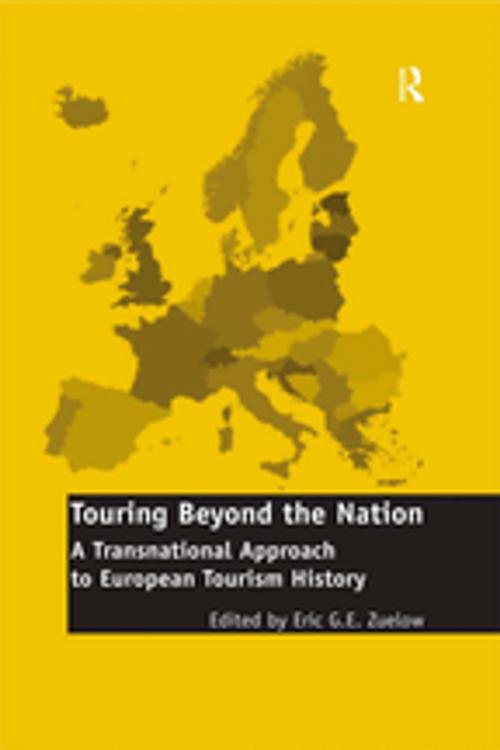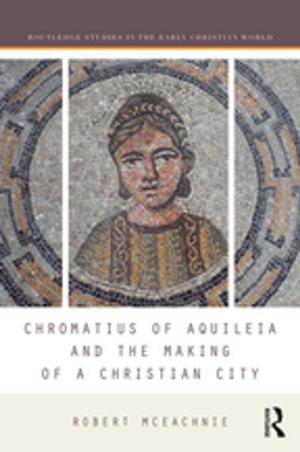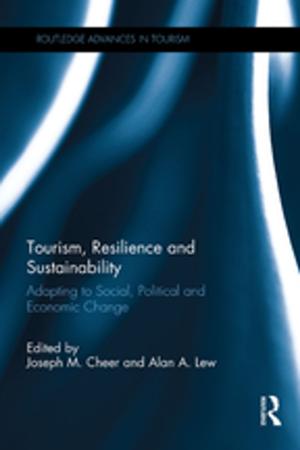Touring Beyond the Nation: A Transnational Approach to European Tourism History
Business & Finance, Industries & Professions, Hospitality, Tourism & Travel| Author: | ISBN: | 9781351878715 | |
| Publisher: | Taylor and Francis | Publication: | December 5, 2016 |
| Imprint: | Routledge | Language: | English |
| Author: | |
| ISBN: | 9781351878715 |
| Publisher: | Taylor and Francis |
| Publication: | December 5, 2016 |
| Imprint: | Routledge |
| Language: | English |
When tourists travel, they often seek the exotic. The farther they venture, the more unique the cultures they gaze upon, the greater the prestige accrued; cross-cultural contact is commonplace. Yet despite the obviously transnational character of the tourist experience, national borders define existing studies of tourism. Spanish, French, or German tourism is treated almost in isolation and there are only hints of a larger transnational impetus behind the creation of national tourism products. This volume tells a different story. Although modern tourism first evolved in Europe changes were never confined to national borders. The Grand Tour, the birthplace of modern tourism, was consummately transnational in both its execution and its influence. Although seaside resorts originated in Britain, the aesthetic and scientific ideas that made beaches desirable emerged through conversation among Dutch painters, English travellers, and both British and Continental scientists and philosophers. When travel was finally available to the masses, Irish tourism advocates looked to England, Continental Europe, and America for ideas. The Nazi leisure organization, Strength through Joy (KdF), was based on an earlier Italian model, the Dopolavoro. World's Fair promoters raided previous fairs in other countries for ideas. European-wide demand and taste helped shape nudist practice in France and beyond. At every turn, practices and products developed because tourism lent itself to trans-national discourse. The contributors examine a wide range of topics that together make a powerful argument for the adoption of a new transnational model for understanding modern tourism. An essential addition to the library of academics studying the history of tourism, popular culture and leisure in Europe, the book will also provide interest to scholars of transnational topics, including Europeanization and globalization.
When tourists travel, they often seek the exotic. The farther they venture, the more unique the cultures they gaze upon, the greater the prestige accrued; cross-cultural contact is commonplace. Yet despite the obviously transnational character of the tourist experience, national borders define existing studies of tourism. Spanish, French, or German tourism is treated almost in isolation and there are only hints of a larger transnational impetus behind the creation of national tourism products. This volume tells a different story. Although modern tourism first evolved in Europe changes were never confined to national borders. The Grand Tour, the birthplace of modern tourism, was consummately transnational in both its execution and its influence. Although seaside resorts originated in Britain, the aesthetic and scientific ideas that made beaches desirable emerged through conversation among Dutch painters, English travellers, and both British and Continental scientists and philosophers. When travel was finally available to the masses, Irish tourism advocates looked to England, Continental Europe, and America for ideas. The Nazi leisure organization, Strength through Joy (KdF), was based on an earlier Italian model, the Dopolavoro. World's Fair promoters raided previous fairs in other countries for ideas. European-wide demand and taste helped shape nudist practice in France and beyond. At every turn, practices and products developed because tourism lent itself to trans-national discourse. The contributors examine a wide range of topics that together make a powerful argument for the adoption of a new transnational model for understanding modern tourism. An essential addition to the library of academics studying the history of tourism, popular culture and leisure in Europe, the book will also provide interest to scholars of transnational topics, including Europeanization and globalization.















